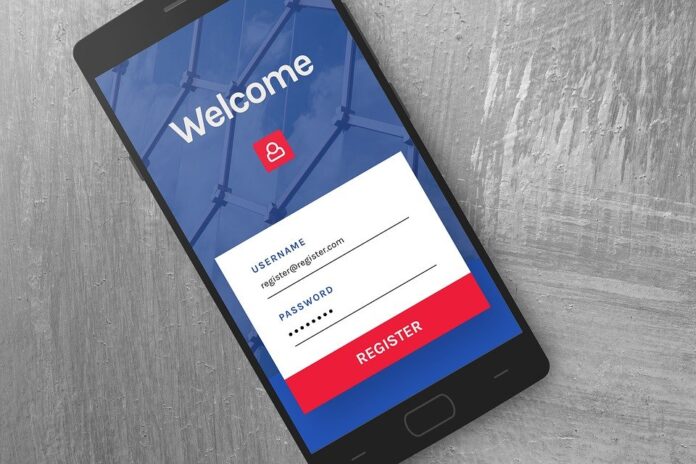It’s important to make a good first impression.
For example, in person offline, if you want to make a good impression, you should arrive on time for your job interview and make sure you’ve brushed your teeth after eating garlic.
The same principle that you should “make a good first impression” applies to email interactions as well as face-to-face encounters. The right welcome email can go a long way to connect with potential business contacts or customers.
What is a welcome email?
A welcome email is the first email that a company sends to a new customer, blog subscriber, or newsletter subscriber. Welcome emails can contain videos, special offers, a sign-up form, or just a friendly hello to establish a relationship with a new contact.
You can make a great first impression on new customers by sending them a welcome email. We’ve found some examples of great welcome emails from both big and small brands to help you make the best first impression possible.
The Components of an Impressive Welcome Email
What makes a great welcome email? These include:
Compelling Subject Lines
In order to make a great first impression, you need to ensure that recipients actually open your emails. This can be done by having short and direct subject lines that explain what the email is about, who it is from, and why it matters to potential customers.
Content Recommendations
Welcome emails should introduce your brand and also provide next steps for customers who are interested. A good way to provide context for customers is to offer links to content on your website.
Custom Offers
Welcome emails that are personalized to the consumer’s interests can help make them stand out compared to other emails. By providing offers on products that the consumer may want, based on information they have given or data available on public social platforms, welcome emails can help sustain the consumer’s interest.
Clear Opt-Out Options
It sounds counter intuitive, however, if you don’t want customers to unsubscribe from your emails, make sure to provide an easy way for them to opt-out. No-one likes to feel trapped.
10 Examples of Standout Welcome Emails
What makes a great welcome email? We’ve collected some examples of great welcome messages that include getting started messages, thank you emails, and offer templates to help you take customers through the welcome process from start to finish – and make a great impression along the way.
1. Eve sleep
Subject line: You’re part of the family now
The subject line of this email makes you feel like you are part of the community, and the opening statement establishes the brand as being caring and focused on a greater purpose.
Our customers rave about the best night’s sleep they’ve ever had. We believe that everyone should wake up feeling happy. That’s why we create mattresses that are incredibly comfortable, so you can get a great night’s sleep. Our customers often praise us for how well they sleep on our mattresses.
When a store has a guarantee like that, you can be confident that you will find the perfect mattress there.
The most significant benefits of Eve’s products are that they make you happy when you wake up, and you sleep better at night. That’s a great way to get people’s attention!
Classic call-to-action at the end of the introduction paragraph: “shop now.”
Even though your paragraph is awesome and creative, you should keep your call to actions simple.
The second part of the welcome email offers perks that help bring the reader closer to making a purchase:
- Free delivery
- 100-night trial
- 10-year warranty
Eve not only offers quality shipping, but they also make it super comfortable.
You’re going to have a great time.
No frustrations, no trouble.
2. Evernote
Subject line: Welcome to Evernote!
The opening statement in Evernote’s welcome email caught my eye:
Your notes deserve to be stored in a good place! Install Evernote on your phone today.
This note-taking app is excellent and provides clear, concise directions on how to enjoy its benefits.
Evernote keeps its copy short, light and to the point, telling new subscribers:
- How to download the app.
- How to use it to improve productivity efficiently.
This is the right thing to do because people generally spend only 11 seconds reading an email, according to Litmus research.
If you want your email to be read, make it easy to digest by using heads, subheads, bullets, and other strategies that allow for quick consumption.
3. Grammarly
Subject line: You + Grammarly = Ready for Action
Grammarly has been doing a great job with online communication.
They know how to make you fall in love with their personality using online channels. Grammarly uses witty, playful language to get right to the point.
Welcome to (Name of Company)! We are excited to have you as a part of our community. Our goal is to help you Write the Future by providing you with the tools and resources you need to succeed. With our platform, you can connect with other writers, get feedback on your work, and find new opportunities. We can’t wait to see what you will create.
If you improve your writing skills, you will be able to have more meaningful conversations, achieve great things, and develop stronger relationships.
That’s a very good point of view, and when you think about it, there is a lot of truth to it. That’s a great analogy.
There are three sections that follow that will guide you through Grammarly’s basic features so that you can get started and learn how to get value from it quickly.
An easy way to make sure your brand is engaging and memorable is to use a consistent tone-of-voice across all communications.
4. Headspace
Subject line: Ready to meditate?
The meditation app Headspace created a great product that leads to a happier and healthier life. They also did an excellent job with mindful storytelling.
And their animations rock!
Welcome emails from Headspace are interesting because of their cartoonish brand style. Their use of illustrations provides helpful meditation lessons and defines their brand identity.
This welcome email example:
- tells you exactly how the trial works
- uses a strong lead magnet (free 10-day beginner course)
- explains what happens when you want to go beyond the basics of meditation
It would be helpful if there was a second CTA button at the bottom of this welcome email, so that people wouldn’t have to scroll back up to begin meditating.
5. Unsplash
Subject line: Welcome to Unsplash
In conclusion, first impressions are important, whether you are meeting someone in person, talking to them on the phone, or emailing them. Your welcome email is often the first contact a prospective customer has with your brand, so it is important to make a good impression. If you do not make a good impression, they are likely to go to another brand.
It’s not difficult to write a great welcome email, as long as you focus on what’s important: an interesting subject line, quality content, personalised offers, and the ability to unsubscribe at any time. A good first impression can help set the stage for long-term relationships.


